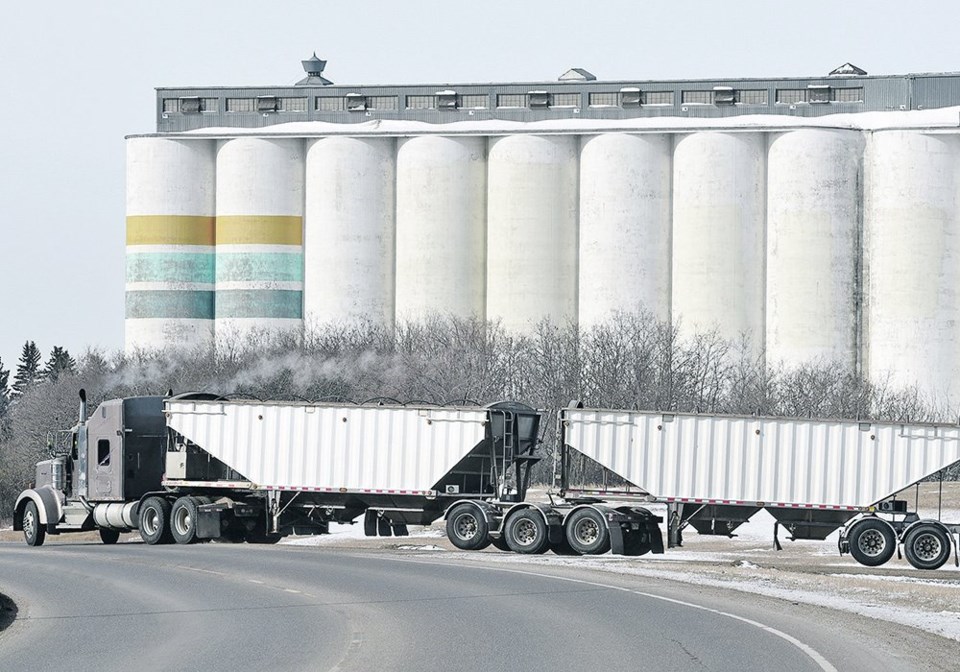“We had a lawyer look into these contracts, as an organization,” said Kenton Possberg, a wheat growers director in Saskatchewan.
“What he came back with, was that these contracts were extremely one-sided. To the point that they’re 95 percent in favour of the grain company…. If there is going to be a year to try and get these issues resolved, it’s got to be this year.”
This fall, hundreds of western Canadian farmers were unable to satisfy their production contracts for canola, oats and other crops, because heat and drought slashed yields in half or worse.
Many growers are facing huge penalties of $100,000 or higher, for failing to fulfill their contracts. Some farmers were able to resolve the issue with grain companies, but many others could not. Many are now dealing with the financial crunch of poor yields, high input costs and substantial contract penalties.
In response, the NFU is urging the federal government to use the Canada Grain Act and create regulations “that would require all grain contracts to include an Act of God clause,” the organization said in a release.
“There is no question that many farmers are short grain through no fault of their own… By enticing farmers to sign contracts that don’t include an Act of God clause, companies transfer all the risk to farmers,” said Dean Harder, of Lowe Farm, Man.
Mandating such language in grain contracts would not be a simple or speedy process.
Until that happens, companies should be required to roll over contracts if there was a crop failure, “allowing farmers to deliver grain owing at the contract price the following year,” the NFU added.
Other farm groups have also taken a position on grain contracts, to reduce the financial risk to producers:
- The Agricultural Producers Association of Saskatchewan (APAS) and six commodity groups in the province have sent a letter to the Western Grain Elevator Association asking grain companies to forgo contract penalties this year. As well, APAS president Todd Lewis has said that a standardized contract is needed, with “seven or eight main features (in) every contract.”
- Lynn Jacobson, Alberta Federation of Agriculture president, said “AFA policy has been that we need a ‘Standardized Grain Production Contract’ that is fair to producers and grain companies.”
- In Manitoba, the Keystone Agricultural Producers has decided that producer education on grain contracts and marketing is the best way to alleviate risk.
- The Western Producer contacted the Grain Growers of Canada for its position on grain contracts, but representatives didn’t respond by press time.
Unlike the NFU, the Western Canadian Wheat Growers Association doesn’t have a specific proposal to solve the grain contract dilemma. But it is unusual for the NFU and Wheat Growers to be on the same side of a grain marketing issue.
The NFU remains an ardent supporter of the Canadian Wheat Board and the Wheat Growers lobbied, for years, to eliminate the CWB.
Nonetheless, the status quo is no longer acceptable for grain contracts, Possberg said.
Over the years, Wheat Grower representatives have met with grain company managers, to try and sort out issues around grain grading, price discounts and contracts.
Those talks were not productive.
“We’ve been trying to work with the grain companies, this whole time, and we really haven’t gotten anywhere,” said Possberg, who farms near Humboldt, Sask.
“We have no ability to negotiate the contract. It’s a take it or leave it.”
At this point, Possberg is worried about a “knee jerk reaction” to the grain contract issue. Farmers need to consider the consequences of something like a standardized contract.
Grain companies could be strongly opposed to such an idea, because offering better terms is almost like a customer loyalty program.
“The contracts are competitive,” said Wade Sobkowich, executive director of the Western Grain Elevator Association. He added that companies view it as “giving them advantage, (in) attracting grain from farmers.”
Flexible contracts, more favourable language and competition between companies is good for producers. But that principle falls apart, if there isn’t enough competition in certain parts of the Prairies, Possberg said.
“In any local area, some people only have one company that’s close enough…. Some people have two.”
Besides its request for a universal Act of God clause, the NFU also wants changes to Agri-Stability, so farmers can sign up late for the program.
“Since the cost of having to buy-out shortfalls can be included in a producer’s AgriStability expenses, the NFU also urges the governments of Alberta and Saskatchewan to follow (British Columbia’s) and Manitoba’s example and allow late enrolment…. While a short-term fix, it could keep more farmers in business.”




